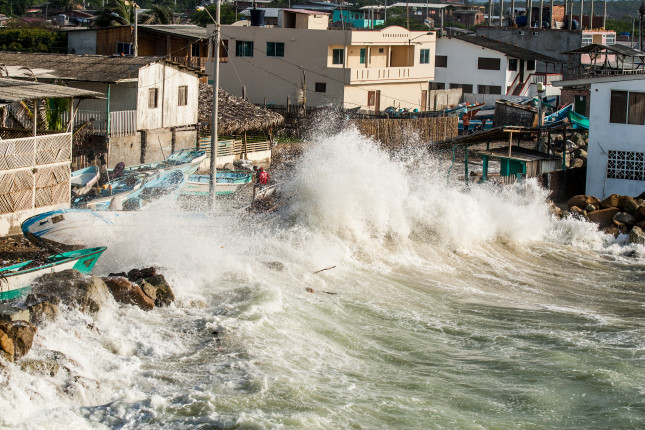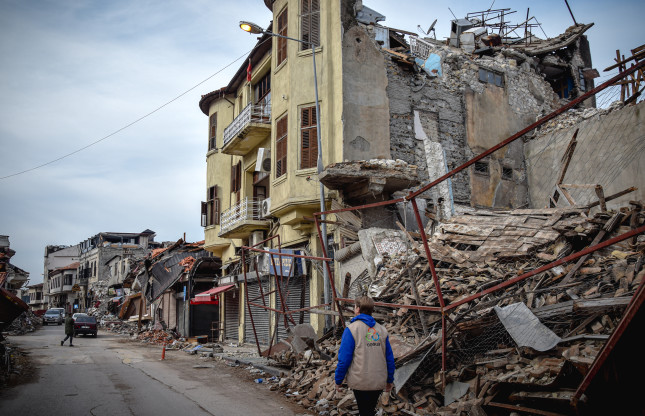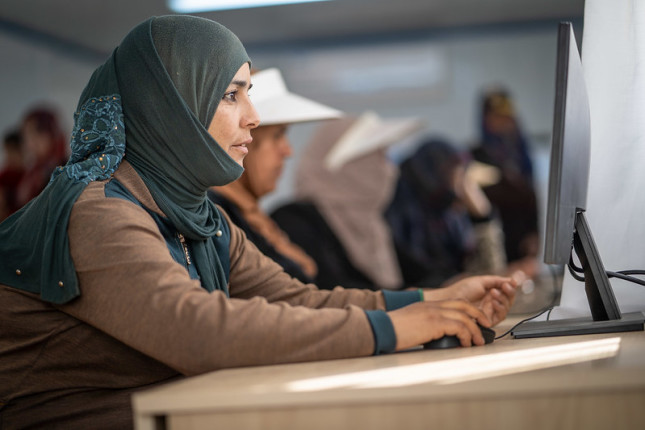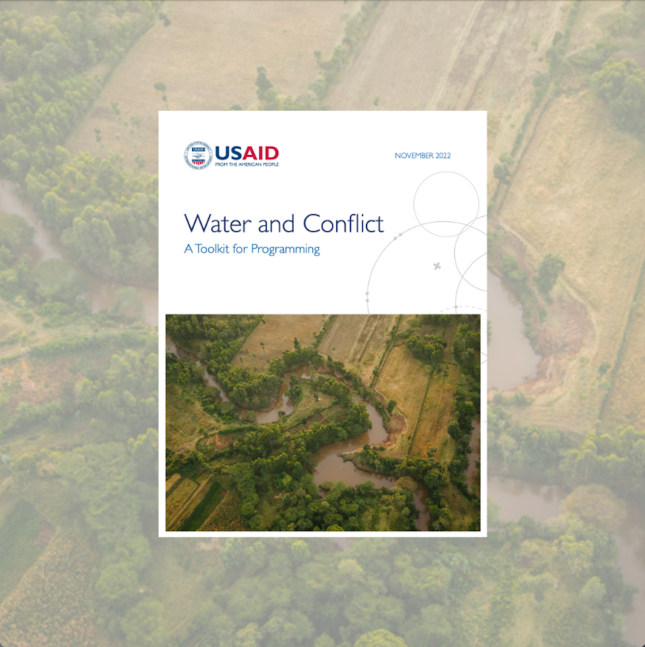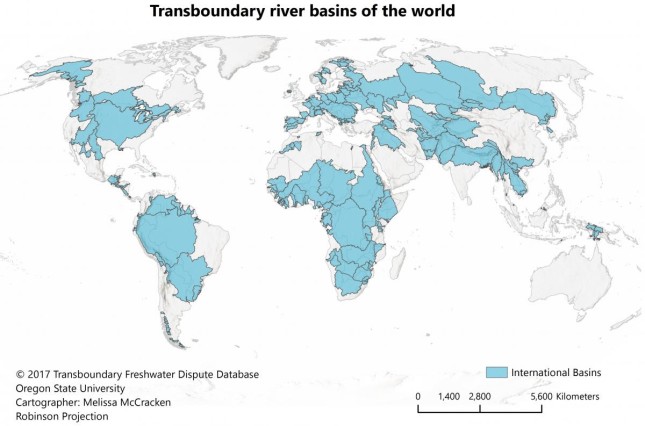-
Militaries, Metals, and Mining
›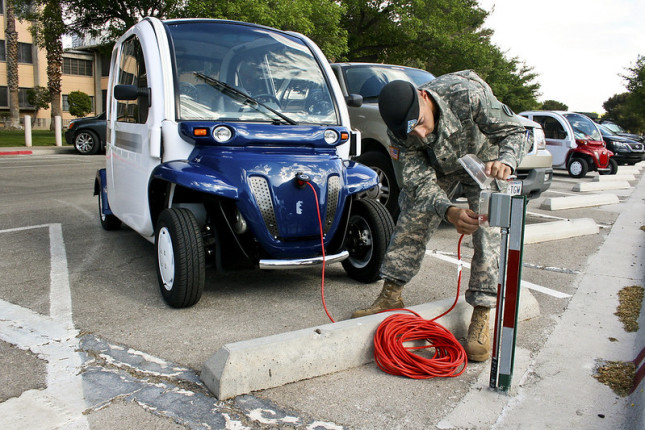
In the early 1960s, Soviet fulfillment officers at the Berezniki and Zaporozh’ye ilmenite mines must have noticed an uptick in worldwide demand for titanium. Orders for titanium sponge were increasing around the globe, and the Soviet Union reacted by increasing production rapidly.
Yet some of these deliveries resulting from this boost in production were not reaching their intended customers. In fact, some of their customers didn’t even exist. Little did the Soviet producers know that it was actually the CIA on the receiving end of these shipments.
-
Climate and Coastal Adaptation: The Need for Urgent Planning
›
The latest report from the UN’s Intergovernmental Panel on Climate Change highlights the small window of opportunity available to achieve climate resilient development, despite the growing risks of reaching tipping points. Environmental advocates argue that the UN’s warnings should remain front-and-center, including those that highlight worsening climate trends already experienced by developing nations.
-
Shaken to The Core: The Plight of Syrian Refugees After February’s Earthquake
›
Madiha vaguely remembers her family fleeing war-torn Syria. But even a decade later, she still bursts into tears describing their midnight escape across the border to Turkey. She and her family were forced to flee after losing family members in a civil war in which they had no stake.
Little did Madiha—who is now 11 years old—and her family know they would experience another monumental trauma a decade later. This time, it was a 7.8 magnitude earthquake that rocked large swaths of southern Turkey on early February 6, 2023.
The roof they built with their own hands collapsed over their heads, killing several of Madiha’s nieces and siblings. “A large piece of brick fell on my mother’s leg, but she luckily survived,” she said tearfully.
-
New Security Broadcast | Ecoaction’s Kostiantyn Krynytskyi on Securing Ukraine’s Energy Future
› Since the start of Russia’s war in Ukraine, Kostiantyn Krynytskyi, Head of Energy at Ecoaction, and his colleagues, have been tracking the ongoing environmental damage caused by Russia’s aggression. In today’s episode of New Security Broadcast, ECSP Director Lauren Risi speaks with Krynytskyi to discuss how Ecoaction, the largest environmental NGO in Ukraine, is mapping out the environmental destruction caused by the war and working to develop a green post-war reconstruction of Ukraine. Krynytskyi shares how the war has impacted Ecoaction’s priorities and shifted its approach to address short-term energy needs in Ukraine while safeguarding a secure and sustainable energy future.
Since the start of Russia’s war in Ukraine, Kostiantyn Krynytskyi, Head of Energy at Ecoaction, and his colleagues, have been tracking the ongoing environmental damage caused by Russia’s aggression. In today’s episode of New Security Broadcast, ECSP Director Lauren Risi speaks with Krynytskyi to discuss how Ecoaction, the largest environmental NGO in Ukraine, is mapping out the environmental destruction caused by the war and working to develop a green post-war reconstruction of Ukraine. Krynytskyi shares how the war has impacted Ecoaction’s priorities and shifted its approach to address short-term energy needs in Ukraine while safeguarding a secure and sustainable energy future. -
Pushing Back the Pushback: Addressing the Complexities of Gender and Migration
›
“We must unite our efforts to push back the pushback,” said Katrín Jakobsdóttir, Prime Minister of Iceland, at a recent side event during the 67th Session of the Commission on the Status of Women (CSW67). Humanitarian crises and forced displacement increase pushback against women’s and girl’s human rights and safety. Jakobsdóttir called for global efforts to recognize this inequity and to fight for gender equality in humanitarian responses.
-
USAID’s Revised Water and Conflict Toolkit
›
Links between water and conflict seem to crop up everywhere one looks these days. The Horn of Africa will soon face a sixth consecutive failed rainy season in 2023—its worst drought on record. Not only is this drought a consequence of global climate change, but it has also led to widespread food shortages and local civil conflicts. And over the past year in Ukraine, Russian troops have directly damaged that nation’s already vulnerable water systems, including pipelines, pumping stations, and treatment facilities. These repeated attacks on water infrastructure have not only undermined local livelihoods in Ukraine, but they have also polluted surface waters and threatened biodiversity.
-
The UN Water Conference and Latin American Transboundary Waters: A Case for Better Governance
›
In recent decades, the international system has undergone profound changes—especially in terms of the types of threats that destabilize international peace and security. As new threats emerge, a focus on new dimensions of the concept of security is now reaching the top of the international agenda. In this context, the global freshwater crisis is beginning to be perceived as an existential threat to states requiring extraordinary measures to alleviate or solve the problem.
-
Tracking Conflict and Cooperation Over the World’s International Freshwater Resources
›Guest Contributor // March 20, 2023 // By Alexandra Caplan, Melissa McCracken, Susanne Schmeier, Zoe Rosenblum & Aaron Wolf
Waters that cross international political borders can drive the countries that share them to conflict—or encourage cooperation between them. Indeed, since the 1940s, overall trends point to a tendency for countries to cooperate over shared water resources, which stands in stark contrast to media portrayals of “water wars.”
Yet instances of conflict over water have increased slightly since 2000. Why? Most of them are fueled by water quantity disputes or the unilateral development of dams or other infrastructure. Institutions often play a key role in facilitating cooperation (and reducing conflict) over shared waters, but their growth and adoption have slowed over the last two to three decades.
Showing posts from category security.


